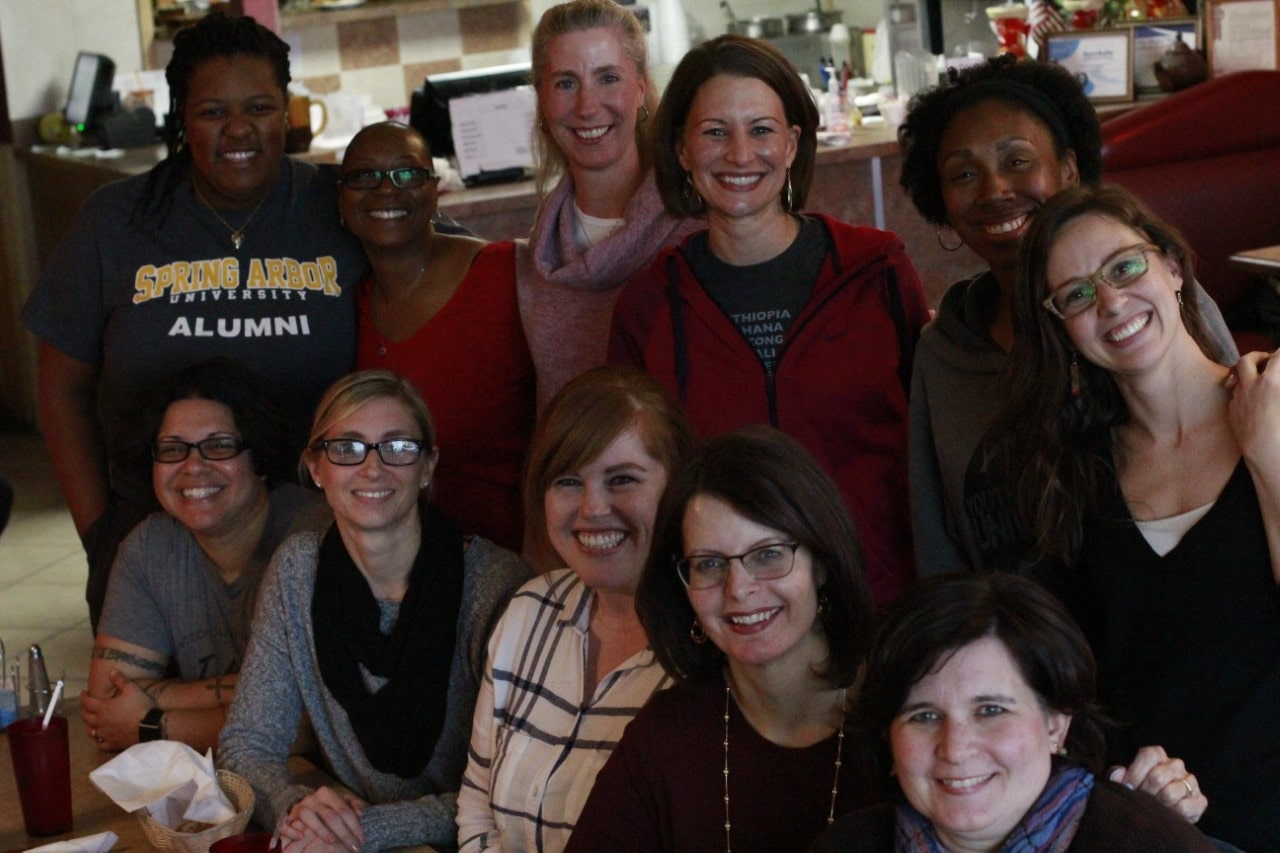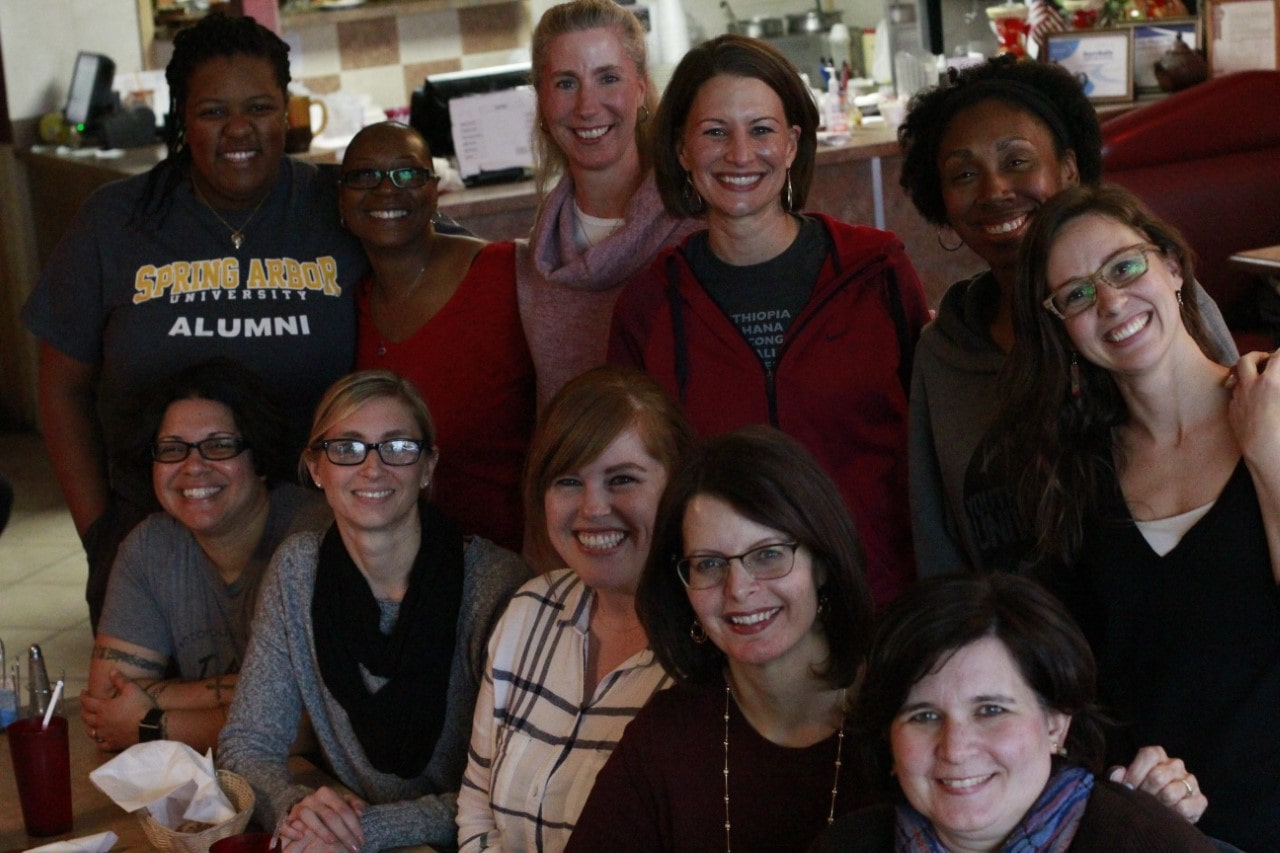
CANTON, MI (April 18, 2017) – The founders of LifeChurch Canton’s first small group on racial reconciliation are learning that vulnerability can lead to new ways of seeing the world and to forming unlikely bonds.
The group began after a conversation Teré Turner had with a friend about racial reconciliation. The friend asked Turner if she were praying for racial reconciliation in the country. Turner felt guilt as she admitted she was not.
Convicted, she began to pray and educate herself about issues of systematic racism and implicit bias. But she wanted to go beyond reading. “I am a white woman who grew up in a white bubble. I’ve had very little exposure to people who are different from me. With so much segregation on Sunday mornings, I know I’m not the only one.”
A mutual friend introduced Turner to Tamra Soderburg, an African American church member. The two of them now co-lead the group using the curriculum “Be the Bridge,” which advocates that groups like theirs be co-led by people of different races or ethnicities.
“There is a difference between reading about racial inequity in the workplace and hearing the experiences directly from women you have grown to love,” Turner says. “Or hearing the despair in the voices of mothers as they share their fears about releasing their black sons into a world where the color of their skin can make them a target for injustice—even if they do all the right things.”
“I wanted to start a group like this so people of a different race, mostly white, could get some perspective,” Soderburg says. “It’s things that I have to do for myself and that I have to teach my children that other races will never have to do. I’m so happy that God is growing me along with my sistas together in love and acceptance of one another.”
Soderburg has experienced her own change. “The group has changed the way I think about mixed families,” she says, noting that a white woman in the group was fostering a black child. “Prior to this group and getting to know her better, I had words to say about a situation like that. But now I’m willing to totally defend her because I know her story.”
The women do more than talk. They have attended church together at LifeChurch Southfield, a predominantly African American congregation, and they attended a talk in Ann Arbor by Bryan Stevenson, author of Just Mercy.
The group was convicted by Stevenson’s call to understand brokenness. “There is a strength, a power even, in understanding brokenness, because embracing our brokenness creates a need and desire for mercy, and perhaps a corresponding need to show mercy,” Stevenson said. “When you experience mercy, you learn things that are hard to learn otherwise.”
These days, Turner says, “I am so blessed that God opened my eyes and allowed me to break free from that bubble and get to know my sisters in Christ of different races. This is no longer an academic issue for me—it’s a moral issue. And my answer to the question about praying for racial reconciliation has changed—now I can say yes!”














